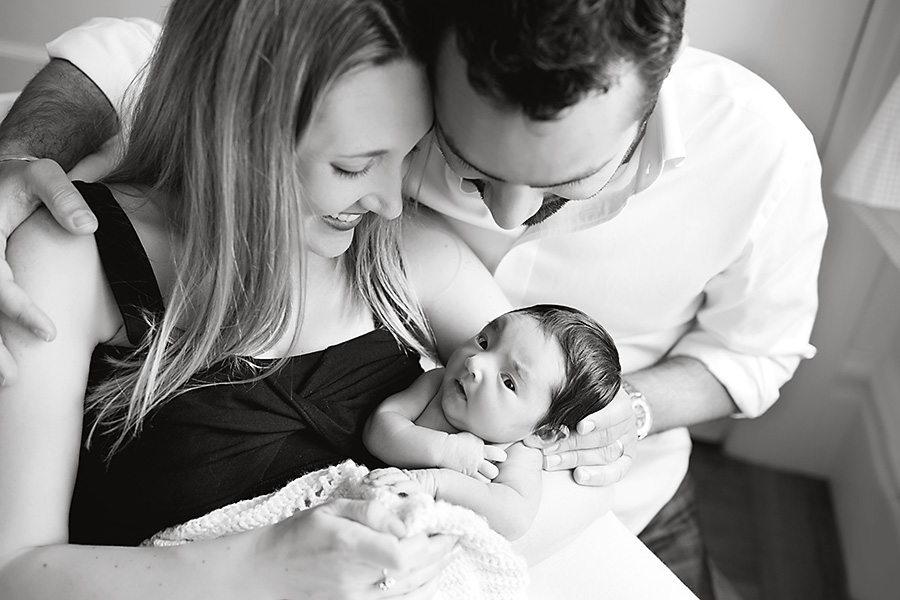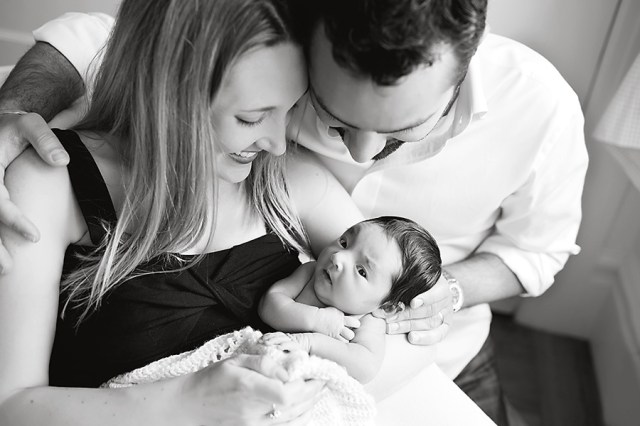
I was seven months pregnant with my first daughter when an acquaintance asked me about my plans for maternity leave. I was lucky, I told her. My employer provided eighteen weeks of paid leave. During my leave, I figured I could stay on top of what was happening at work while the baby slept, answering emails and hopping on to e-meetings. “I’ll probably be ready to go back pretty quickly,” I told her. “I’m not sure how I’ll handle the slower pace of staying at home with a newborn.”
Up until that point, I had managed to spin every plate life brought me. I had been leaning hard into my career, juggling multiple high-stakes projects with a bustling personal life. I had a couple of degrees, a successful job, and so far, a lot of unrealistic expectations about motherhood. Like many parents, I thought I knew a whole lot about having a child before I even had one. I thought I could do it all.
And then my baby came.
The joy that came with holding my little one for the first time soon morphed into something I’d never experienced before: a type of whole-body, whole-brain exhaustion that rendered me pretty much useless at anything besides keeping my baby alive. As predicted, I did have a good portion of my days free while my baby slept. But I was hardly functional during those hours because my daughter was up all night. In the first few months of my daughter’s life, I was so woozy I could hardly hold a conversation with my husband— let alone my manager or a colleague.
And then there was breastfeeding. I was determined to make it work because I knew about the health benefits for me and the baby. But I can count at least half a dozen times I almost threw in the towel. I spent night after night awake with my screaming infant trying to feed, wondering when I’d start to feel normal again—when I’d begin to feel at home in my body, when I’d get a full night’s sleep, and when the edge of anxiety constantly grating on me would finally dissipate.
I thought back to my passing comment about maternity leave. Even three solid months into motherhood, I wasn’t near ready to go back to work. I was stressed all the time, my daughter was still struggling to feed, and if you asked me about self-care, I would have stared at you blankly. I remember trying to come up with a way to pamper myself and remember I was a person, too. All I could come up with was thirty seconds of flossing my teeth, but it felt glorious. In other words: I was stretched close to my breaking point. Having to worry about finances or get myself together to go to work after being awake all night would have done me in.
Even so, I was among the small percentage of parents who actually have access to paid leave. Parents without that same privilege would be forced to choose between their baby’s health and their own well-being and a third variable: either working or taking time off without pay.
Once I had the luxury of sleeping through the night again (it took a good year), I realized parental leave isn’t just a nice add-on to a benefits package. It’s an essential, a human right. Our mental and physical health hinges on it. Motivated by my experience, I started advocating for better-paid leave policies and coaching friends to approach their managers about improving benefits. I joined the board of an organization that advocates for paid medical and family leave for all Americans. And just last year, I went all in. I quit my job and started a platform dedicated to educating parents on how to make choices for their family’s well-being called Exhale Parent. Exhale’s central content is a trove of information about understanding and navigating through parental leave, which I personally knew to be incredibly confusing. Because of my time in the trenches of early motherhood, I want to help other parents earn the rights they deserve.
Looking back, there are some things I’d do differently with my first baby. Had I known the struggle that was ahead—and how essential parental leave is for a family’s well-being—I would have recalibrated my expectations for my leave. And when my friend asked me about my plans for maternity leave, I would have skipped the self-serving answer. Instead, I would have told her I was going to soak in every minute of time with my baby, because even the longest, most exhausting days pass by too fast.
